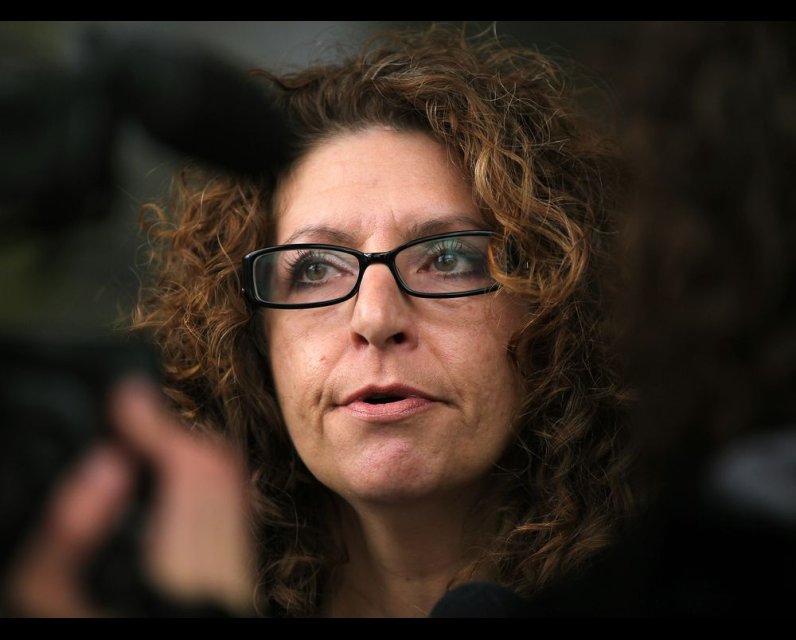What to know about Justice Maria Carroccia, the judge who acquitted the five Team Canada players

In the questionnaire Carroccia completed to apply for a federal judicial appointment, she listed under “non-legal work history” two occupations. From 1980 to 1987, she worked as a part-time pharmacy assistant at Patterson Big V Drug Store, part of a chain that was later taken over by Shoppers Drug Mart. And in roughly the same period (1980 to 1986) she was a part-time waitress at Caboto Club of Windsor. Described on its website as “Southwestern Ontario’s largest and oldest Italian club,” the Giovanni Caboto Club turns 100 this year.
Her parents came to Canada from ItalyCarroccia is the oldest child of immigrants from Italy. Her parents did not finish grade school, and when they came to Canada her father became a construction worker, and her mother a homemaker. Their first language was not English and, growing up, Carroccia was often their intermediary when dealing with government agencies and English-speaking people.
“While they encouraged me to further my education, financially, they were not always able to assist, so I worked part time jobs as a student to pay for my education,” she said in her judicial application. “They taught me the value of hard work. We have a close-knit and loving large family.
She also noted that, as the mother of two children herself, “I have developed an ability to balance my professional life with my personal life.”
She worked as a defence lawyer before she was a judgeCarroccia’s legal work history includes 25 years self-employed as a barrister and solicitor practicing in Windsor, with her practice restricted to criminal defence. Prior to that, she worked for five years for Gordner, Klein, Barristers and Solicitors, practicing criminal law; and two years before that at Gignac, Sutts Barristers and Solicitors, in the same capacity.
She has a degree in English language and literatureCarroccia was called to the Bar of Ontario in 1989 after graduating from the University of Windsor’s faculty of law two years earlier. In addition to her law degree, she also holds an English language and literature degree from Windsor, earned in 1984.
She was appointed in June of 2020 as a judge to the Superior Court of Justice of Ontario by then Minister of Justice and Attorney General of Canada David Lametti. This month, Lametti was named Principal Secretary to Prime Minister Mark Carney, after helping with Carney’s transition into office and as an informal advisor.
She once described herself as a lawyer who ‘works in the trenches’In her judicial questionnaire, Carroccia noted that most of her time as a lawyer was spent as a sole practitioner. “I do not work in a large firm,” she said. “I view myself as a trial lawyer who ‘works in the trenches.’ My contribution to the law is to represent my clients to the best of my ability, whether they are charged with minor offences or the most serious offences.”
She thinks of herself as a plain speaker“The audience for the decisions of the Superior Court of Justice is the average Canadian citizen,” she once said. “It is my view that a judge’s decision ought to make sense to an ordinary person, not just to lawyers, scholars and other judges. An individual should be able to understand the decision of a judge and the law upon which it is based even if he or she is not well-versed in the law.”
Her ruling was criticized but also seen by many as fair and balanced While there was outrage from some quarters at the acquittal, there were also those who praised the verdict and the judge’s careful work. Karen Bellehumeur, lawyer for E.M., said as part of her statement after the verdict: “It’s important to understand that this case, the criminal justice system worked the way it’s designed to work, to aggressively protect the rights of the accused. It’s based on a concept that 10 guilty persons should walk free before one innocent person is wrongly convicted.”And Meaghan Cunningham, assistant Crown attorney, noted: “A fair trial is one where decisions are made based on the evidence and the law, not on stereotypes and assumptions, and where the trial process respects the security, equality, and privacy rights of the victim, as well as the accused persons.”
Read the full text of the judge’s verdict in the Hockey Canada sex assault trialOur website is the place for the latest breaking news, exclusive scoops, longreads and provocative commentary. Please bookmark nationalpost.com and sign up for our daily newsletter, Posted, here.

Comments
Be the first to comment